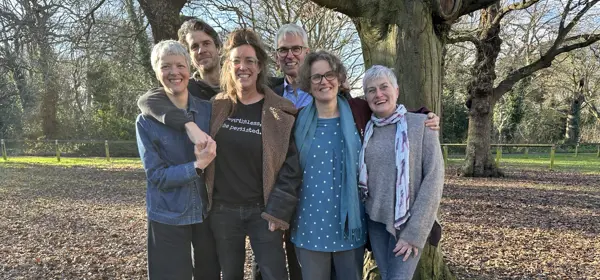
Taking the strain
Pressures on doctors and other NHS staff have never been greater, and yet occupational health services can be ‘patchy’, and specialist care hard to access. Tim Tonkin hears the urgent need for a comprehensive and high-quality service.
It is not without a certain degree of irony that, while doctors dedicate much of their lives to providing care to their patients, this devotion often comes at the expense of neglecting their own health.
Making sure doctors’ health needs and wellbeing in the workplace are being met is of critical importance, not just for the clinicians affected by ill-health but also for helping to minimise staff absences and to ensure safe and effective care is delivered to patients.
In this respect a trust’s occupational health unit can play an indispensable role, one that since COVID has become more visible and increasingly sought after.
While traditionally viewed by health professionals as merely a one-stop-shop for routine health clearances and booster vaccinations when starting in a new workplace, occupational health departments are charged with a range of roles concerning staff health.
These responsibilities include undertaking health assessments and providing rehabilitation to staff returning to work following illness or injury or advising employers about suitable alternative positions for staff temporarily or permanently unable to perform their existing role.
Healthcare workers have higher mental health needs than the general population
Dr Kaser
Occupational health also assists in the development of workplace policies and practices designed to promote and safeguard the physical and mental wellbeing of the staff working there and can serve as a conduit sign-posting those with health issues to more specialised forms of support.
A recent example of this collaborative approach is the SMHS (Staff Mental Health Service) at Cambridgeshire and Peterborough NHS Foundation Trust.
Launched in September 2020, the service provides rapid access to psychological assessments and treatment and is available to 25,000 clinical and non-clinical staff based across five trusts.
Consultant psychiatrist Muzaffer Kaser is part of the service’s multidisciplinary team, which includes psychiatrists, psychologists, mental health nurses and an occupational health nurse.
He says that, while referrals come from a number of sources, including general practice, more than 85 per cent of those he and his colleagues see comes from the trust’s occupational health service.
Patchy service
He said that a particular innovative aspect of the scheme was having occupational health embedded and part of the conversation when it came to determining reasonable adjustments and supporting staff engaged with the service in remaining or returning to work.
‘Universally healthcare workers have higher mental health needs than the general population, [at the same time] the healthcare they get is usually quite patchy and there are many barriers towards them accessing help,’ he says.
‘In the current provision in the NHS, there are lots of people who fall into the cracks of the mental health system [and] what we have seen in the last couple of years is healthcare workers tend to fall into those gaps quite easily and then experiencing delays in their assessments and treatments.
‘We work closely with occupational health departments, and we get referrals from occupational health. Our main aim is to provide rapid access, namely first contact within three days, then we aim to offer an initial assessment with the clinician within two weeks.
‘Currently we are hitting these targets consistently something that we’re quite happy about as there are lots of benefits to providing rapid access especially for healthcare workers.’
A massive portion of the UK healthcare workforce has little access to occupational health support.
Dr McKinnon
The success of programmes such as the SMHS is a good practice example of what can be achieved for health service staff when occupational health services are effectively utilised.
The wider picture concerning the state of occupational health in the NHS, however, is a complex one with highly variable standards of and access to care between secondary and primary care, and with specialist staff qualified in occupational health in short supply.
A review of occupational health in the NHS conducted by Steven Boorman in early 2021 concluded that an increasingly restrictive financial climate over the previous decade had seen occupational health taking a more reactive approach to staff wellbeing resulting in it being perceived as a viewed as a ‘breakdown service’.
Dr Boorman’s report, Growing a healthier tomorrow, further highlights the diminishing numbers of specialist staff employed in NHS with just 98 occupational physicians working in the NHS in England in 2021 compared with 172 in 2009.
BMA occupational medicine committee co-chair Kathryn McKinnon, who is a consultant in occupational medicine and education, acknowledges these limitations and the need to remedy them.
Structural issues
With levels of burnout among NHS staff higher now than perhaps they have ever been, Dr McKinnon says that, while universal access to well-staffed occupational health has never been more important, huge structural deficiencies need to be addressed if these services are to reach their full potential.
‘While there is [universal] access in secondary care, the access isn’t always what we would like it to be,’ she says.
‘There isn’t always a doctor present on the team, although they may have access to a doctor. And that doctor may not be an accredited specialist.’
Occupational health service provision within general practice is even more complex situation, in large part because GPs are their own employer making the commissioning of services unclear.
This year’s BMA annual representative meeting saw doctors successfully endorse a motion calling for a primary care wide policy on occupational health to assist GP practices in managing long-term sickness and return to work provision for their staff, while Dr McKinnon’s committee is engaged in work towards creating a national occupational health service all primary care workers.
I always explain to people that occupational health is like Switzerland.
Dr McKinnon
‘In primary care it’s just that much patchier and variable, so that you have a massive portion of the UK healthcare workforce that have little or sometimes no access to occupational health support,’ explains Dr McKinnon.
‘The impact [this has] on a small GP practice is enormous. If you’ve got a practice with six doctors and two are off sick. How on earth do they manage a one third loss in medical capability?’
Aside from issues with access and capacity, Dr McKinnon says that more work needs to be done raising awareness of the role occupational health can play as well as in dispelling some of the misconceptions that deter some staff from accessing services.
‘There are definitely concerns about confidentiality,’ she says.‘Whilst we maintain patient confidentiality just like any other doctor, we see these concerns being raised in surveys conducted by the BMA – suggesting the (mis)conception that confidentiality may be breached acting as a barrier or limiting factor to doctors engaging with OH services.
Dr McKinnon said that, while engaging with occupational health often resulted in highly detailed information being gather on an individual, much of this data was for the purpose of assisting the occupational health team make appropriate recommendations, and not to be passed wholesale to an employer.
She added that doctors who used occupational health had a right to see their report ahead of their employer and even, where appropriate, request changes.
‘I always explain to people that we [occupational health] are like Switzerland,’ she says.
‘We’re neutral and we try and make both parties better informed about the medical circumstances and make recommendations that we think will be beneficial from a medical perspective.’



